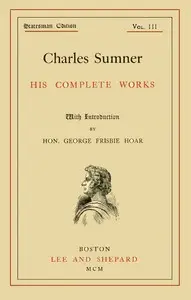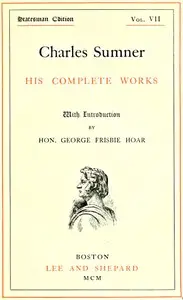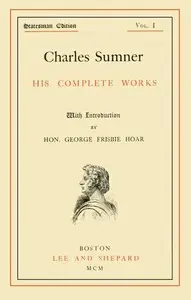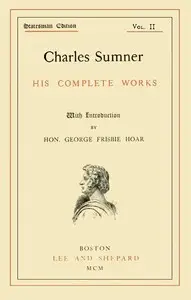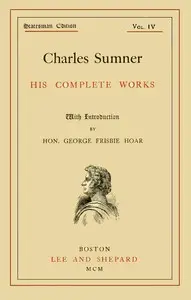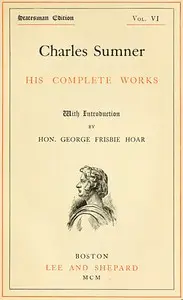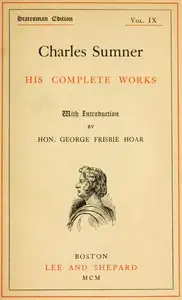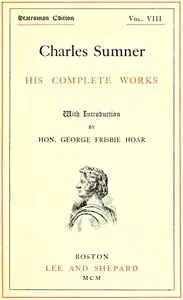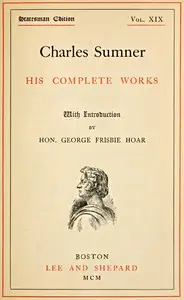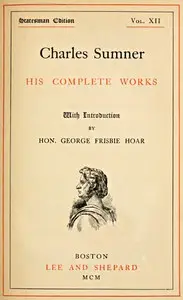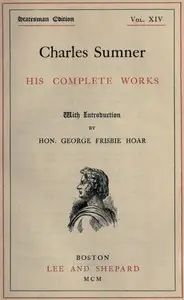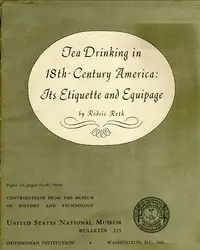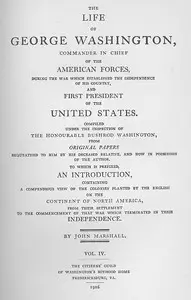"Charles Sumner: his complete works, volume 05 (of 20)" by Charles Sumner is a gathering of speeches and writings that showcases the author's fight against slavery in 19th-century America. This volume highlights Sumner's powerful arguments for fairness and freedom, as he challenges the morality of a country struggling with slavery. As a leader in the abolition movement, his works shed light on his personal beliefs as well as the political world of his time. The volume begins with a speech Sumner gave in New York in 1855, where he passionately talks about the need for, possibility of, and importance of the antislavery movement. Sumner discusses how people's views on slavery have changed, from quietly accepting it to actively fighting against it, underlining the moral duty to end this injustice. He examines slavery’s legal and social aspects, urging the North to unite against its tyrannical hold, and the harm it inflicts on individuals and the entire nation. The speech sets the stage for a compelling argument that emphasizes the ethical and urgent requirements of his era.
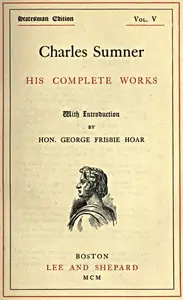
Charles Sumner: his complete works, volume 05 (of 20)
By Charles Sumner
Witness the birth of a movement through the words of a senator, as he fights to dismantle slavery and ignite a nation's conscience.
Summary
About the AuthorCharles Sumner was an American lawyer, politician, and statesman who represented Massachusetts in the United States Senate from 1851 until his death in 1874. Before and during the American Civil War, he was a leading American advocate for the abolition of slavery. He chaired the Senate Foreign Relations Committee from 1861 to 1871, until he lost the position following a dispute with President Ulysses S. Grant over the attempted annexation of Santo Domingo. After breaking with Grant, he joined the Liberal Republican Party, spending his final two years in the Senate alienated from his party. Sumner had a controversial and divisive legacy for many years after his death, but in recent decades, his historical reputation has improved in recognition of his early support for racial equality.
Charles Sumner was an American lawyer, politician, and statesman who represented Massachusetts in the United States Senate from 1851 until his death in 1874. Before and during the American Civil War, he was a leading American advocate for the abolition of slavery. He chaired the Senate Foreign Relations Committee from 1861 to 1871, until he lost the position following a dispute with President Ulysses S. Grant over the attempted annexation of Santo Domingo. After breaking with Grant, he joined the Liberal Republican Party, spending his final two years in the Senate alienated from his party. Sumner had a controversial and divisive legacy for many years after his death, but in recent decades, his historical reputation has improved in recognition of his early support for racial equality.

